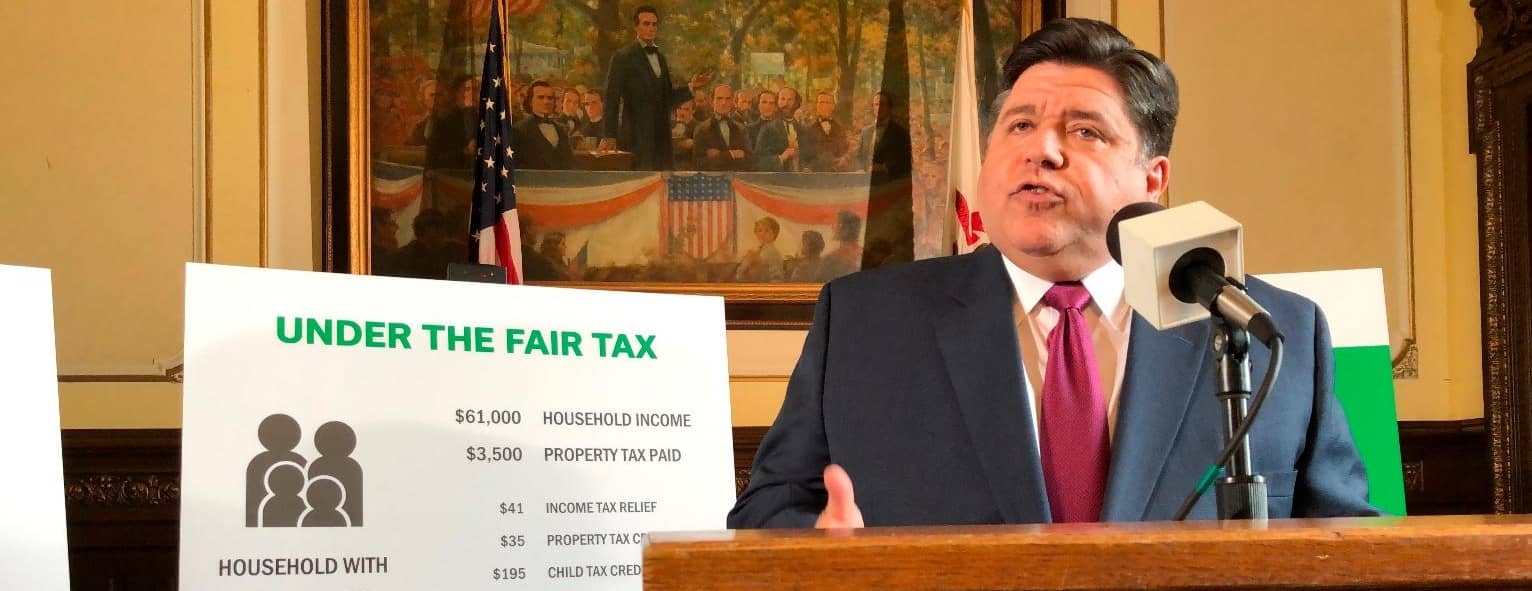
FILE – In this March 7, 2019, file photo, Gov. J.B. Pritzker outlines his plan to replace Illinois’ flat-rate income tax with a graduated structure at the State Capitol in Springfield, Ill. (AP Photo/John O’Connor File)
SPRINGFIELD, Ill. (AP) — Illinois would switch from a flat tax to a graduated income tax that takes a larger percentage from wealthy residents under a proposal on Tuesday’s ballot.
The switch would give Democratic Gov. J.B. Pritzker and lawmakers a roadmap to paying down the state’s billions of dollars in debt.
The question on the ballot would amend the Illinois Constitution, which requires that income be taxed at a flat rate. It’s currently at 4.95% for individual payers. Pritzker campaigned on switching to a graduated rate, contending he could raise $3 billion extra a year while not imposing higher taxes on 97% of taxpayers. The federal government and 32 other states use a graduated structure.
Approving an amendment to the Illinois Constitution requires three-fifths majority approval, or 60%, of all who vote on the question.
Democrats who control the General Assembly have approved a rate structure. Those earning less than $250,000 would pay the current 4.95% rate or less. Those making more than $250,000 would pay higher percentages as income increases, topping out at 7.99% for individuals with incomes over $750,000. The corporate tax rate would increase from 7% to 7.99%.
Pritzker calls it the “fair tax” because it would raise taxes only on the 3% of residents who are the wealthiest.
But critics, who have nearly matched the $50 million in spending on ads that billionaire Pritzker put up in favor of the plan, say it is simply a blank check for free-spending Democrats and won’t be used to pay down debt.
The state has had a pile of overdue bills to vendors and service providers for years, which currently stands at more than $8 billion. Its five pension programs are underfunded by more than $130 billion and the current state budget spends $5 billion more than it takes in because lawmakers were counting on a second COVID-19 relief grant, which Congress has yet to approve.
Critics say the rich will simply leave, forcing the government to raise taxes on lower-income payers and that the graduated tax structure hurts small businesses which pay individual income taxes.
Pritzker has warned that if the amendment fails, the state faces a general flat-tax increase, 15% across the board cuts in state spending, or other draconian measures.
By JOHN O’CONNOR | The Associated Press
